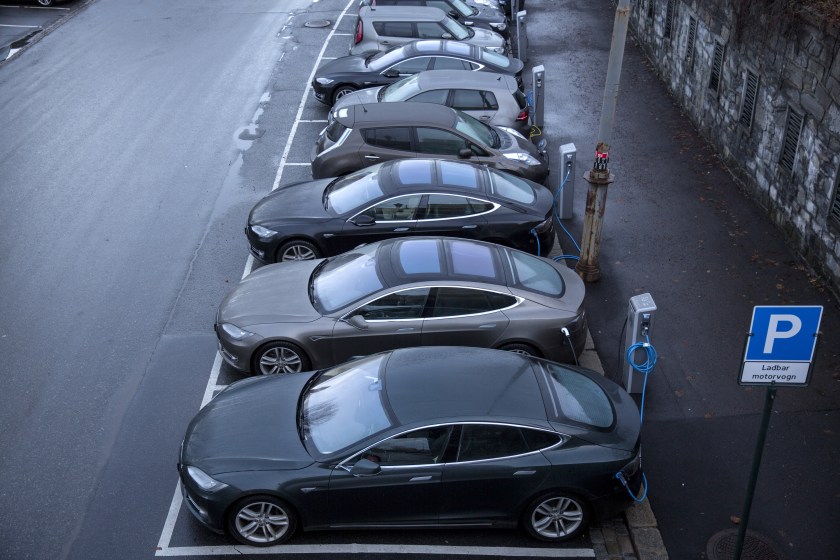
German carmakers BMW, Daimler, Porsche, Audi, and Ford recently said that they would cooperate on a Europe-wide network of electric car–charging stations. The companies released a statement on the joint venture, planning to begin construction of some 400 high-speed charging stations across Europe in 2017. The end goal is to have “thousands” of stations operating by 2020.
“We intend to create a network that allows our customers on long-distance trips to use a coffee break for recharging,” said Audi chief executive Rupert Stadler in a statement.
Hybrid and all-electric cars from any manufacturer using the Combined Charging System (CCS) standard will be able to use the stations, in a move aimed at boosting electric car sales on the continent. The stations will deliver a charge of 350 kW, reducing the time it takes to fill up.
German carmakers have lagged behind some competitors when it comes to introducing electric models. The technology remains little-used in Europe, hobbled by high prices, the short range of the vehicles, and a lack of recharging infrastructure. But recent months have seen a fresh commitment from the industry, a pillar of Europe’s largest economy, to speed up the introduction of electric cars.
The joint venture is also an effort to avoid a shortage of charging stations in Europe. Canada, which has almost 20,000 electric cars on the road, has a shortage of sites already. Given the nascent tech’s range limits, a dearth of stations is an impediment to wider adoption. —Relaxnews with additional reporting by the RealClearLife staff
Learn more by watching the video about the stations below.
This article was featured in the InsideHook newsletter. Sign up now.